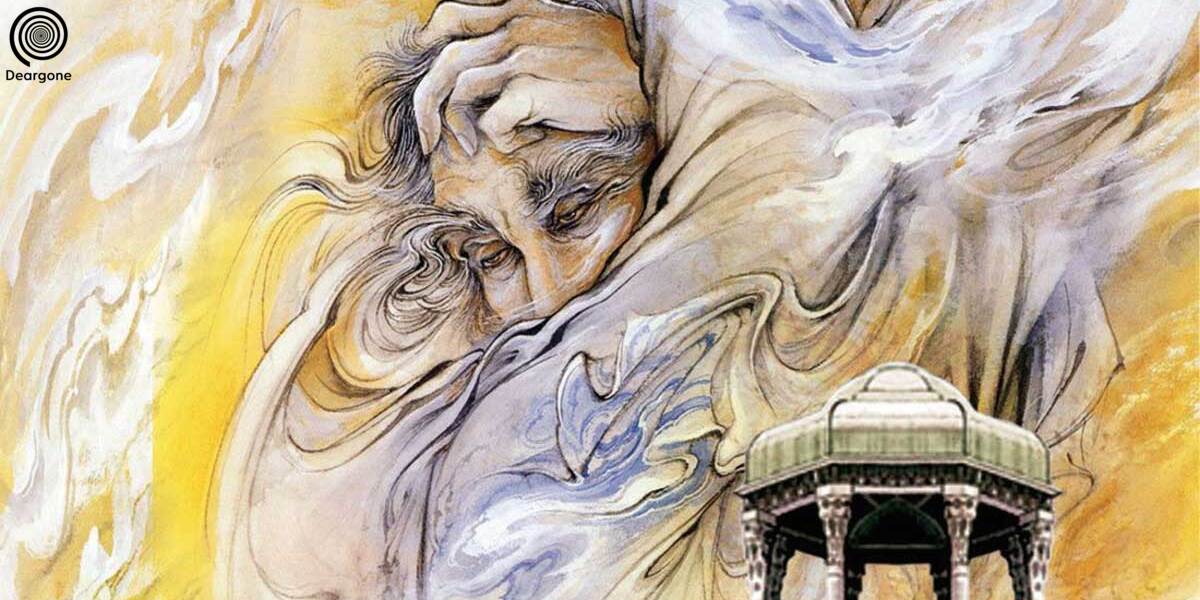Hafez and Iranian poetry and literature
The poetry and literature of this region is a thousand years old. It is clear that Iran is famous for having famous poets in the world.
Undoubtedly, poetry is one of the ways to influence the culture and language of any country on other countries. It is also undeniable to be influenced by the writings and poems of poets who have studied the rich Persian literature and poems.
As English poet Edward Fitzgerald translates Khayyam's quatrains and makes him the most well-known figure of Persian literature among the people of the West.
With the translation of Omar Khayyam's works by Fitzgerald, its deep impact on Western literature and art can be clearly seen.
Poets such as La Fontaine, Dussein, Voltaire, Lobai, etc. are inspired by Saadi in their works. And Ernest Renan, a French linguist, historian and writer, says in praise of Saadi:
"Saadi is really one of our writers. His healthy and unshakable taste, the grace and passion that gives soul and life to his narrations, his humorous and compassionate tone with which he points out human flaws and corruptions, these are all qualities that are rarely found in eastern writers. He is dear to us."
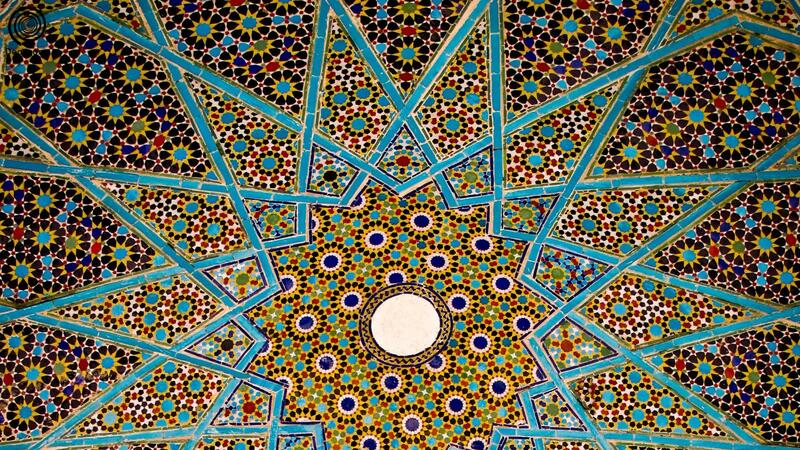
Goethe, the German poet and genius, was influenced by Hafez and created the Eastern Divan, which is one of Goethe's greatest works of poetry and wisdom, and dedicated this poem to Hafez:
Hafaza, I hear in your poems
You have raised poets.
Look, I am giving you an answer now:
He is the great one to whom this is due
And in another place he says:
If the world comes to an end, O heavenly guardian, I wish to be alone with you and by your side, and like a brother, share in your happiness and sadness. I want to drink with you and love like you, because this is the honor of my life and the source of my life.
O my speaking nature, now that you are inspired by Hafez Malkouti, sing a song with your strength and come up with an unsaid song, because today you are older and younger than ever.
Friedrich Wilhelm Nietzsche and Arthur Conan Doyle praise Hafez, and Johannes Brahms uses Hafez's literature in several of his works.
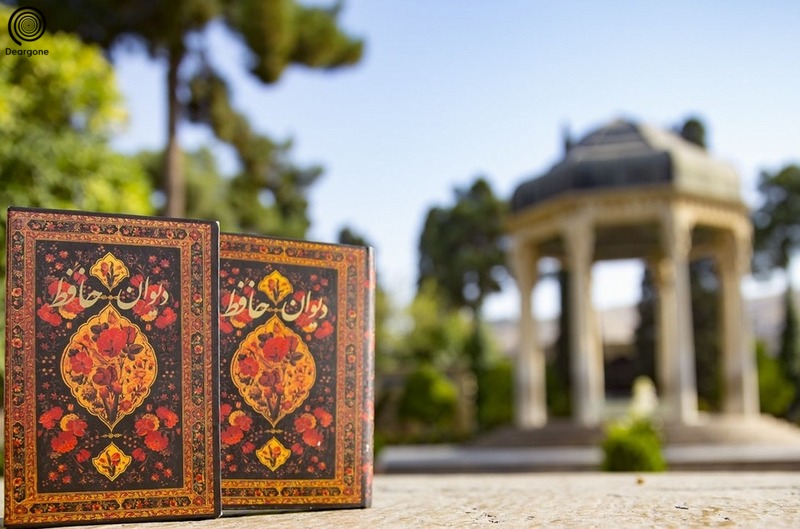
Hafez is a poet who is present in our lives more than others
It is interesting that Hafez's poetry is more present in our Iranians' daily life than the poetry of other great poets, and the reason for this is fortune-telling and fortune-telling of Hafez, because Iranians consider Hafez to be the tongue of the unseen and aware of God's hidden treasures. And with Hafez's daily horoscope
They also entertain themselves in the Internet environment.
There are few people who do not read Hafez's fortune at Haft Sin table or on Yalda night. Tafal to Hafez Shirazi's poems started when a few hours after his death, there were differences of opinion among the attendees about the place of burial, and the attendees sought help from Hafez himself to resolve this difference, and the poet surprised everyone with this sonnet:
Now that the breeze of heaven blows from the garden
Me and Farah Bakhsh's wine and Horsresht's friend
Don't blame me for the black letter
What if fate wrote on his head?
A hesitant step from Hafez's body
Although he is full of sin, he goes to heaven
Also, in a verse, Hafez predicts that his tomb will become a shrine for his lovers in the future.
Over our turbat as you pass
It will be the world's pilgrimage shrine
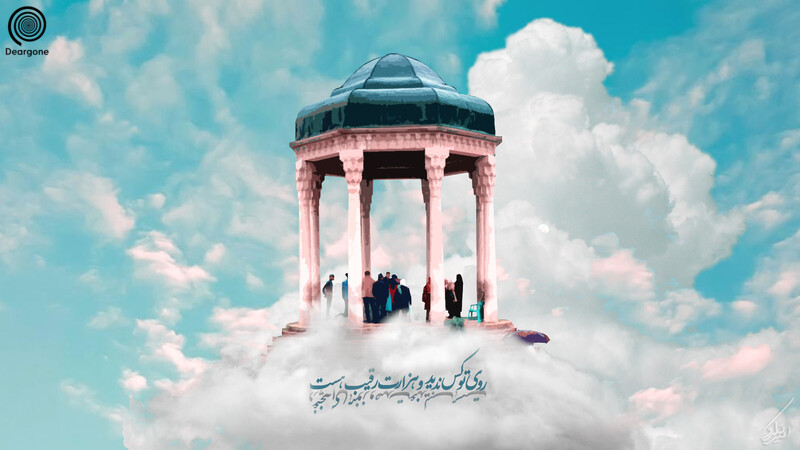
A day in the name of Hafez
The 20th of October is a day that was called Hafiz. On this day, domestic and foreign enthusiasts gather at the tomb of Hafez (Hafiziyah) in Shiraz to talk about Hafez and his poems and introduce him to the world more than before.
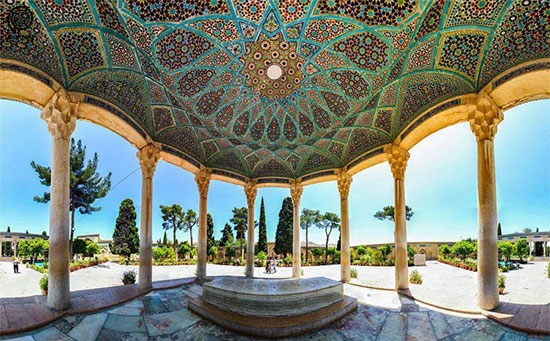
Love in Hafez's poetry
Hafez's poetry is full of love and the pain of love.
What crime have I committed, O soul and heart, to your Majesty that my obedience is not accepted without a heart?
Create and extinguish the pain of love, the keeper of the secrets of love, do not reveal it to people of reason
Dr. Kamran Ali Panahi and Yalda Ghafourian, who have conducted the first research on the "pain of love" in Hafez's poems from the perspective of psychoanalysis, conclude as follows about love in Hafez's words:
In all the verses that Hafez mentions about the pain of love, a metaphor of mother, mother's milk, first day, sucking milk and the first pleasure experienced in life as Freud mentioned in psychoanalysis is clearly used.
Hafez is a poet who clearly and simply considers the concept of "separation anxiety" and "loneliness" which for psychoanalysis is the reason for the pain of love, to be the reason for the pain of love.
At the same time, this separation implies separation from the object of love in different poems, the first of which is mother's milk and the mother herself as a pacifier of apprehension, and then it manifests itself in the face of the mother, Zelf Yar, and the pain of wine.
In this way, wherever the poet complains, he shows the pain of love with aggression towards the lover who left him. On the other hand, sometimes he advises not to talk about love:
For example, he says, "For the pain of love, make Hafez and turn it off." The opinion of the authors is that from the point of view of psychoanalysis, especially the theory of relationship with the object, in his poems about the pain of love, Hafez describes the condition that we know today as schizoid and exists in all humans, and with the pain of love, the fear of separation, distance It depicts a relationship with a lover.
For the poet, "faithful companion" and "mons" refer to an aspect of the schizoid condition, for which it is impossible to express love because he is afraid to further alienate his lover with his love. So he prefers not to talk about it.
But the poet says this to the reader instead of to the lover. In this way, he exalts himself and reduces his fear.
See this Article : Where is hafez tomb hafezieh?
and : Hafez in the inflammatory period of iran
